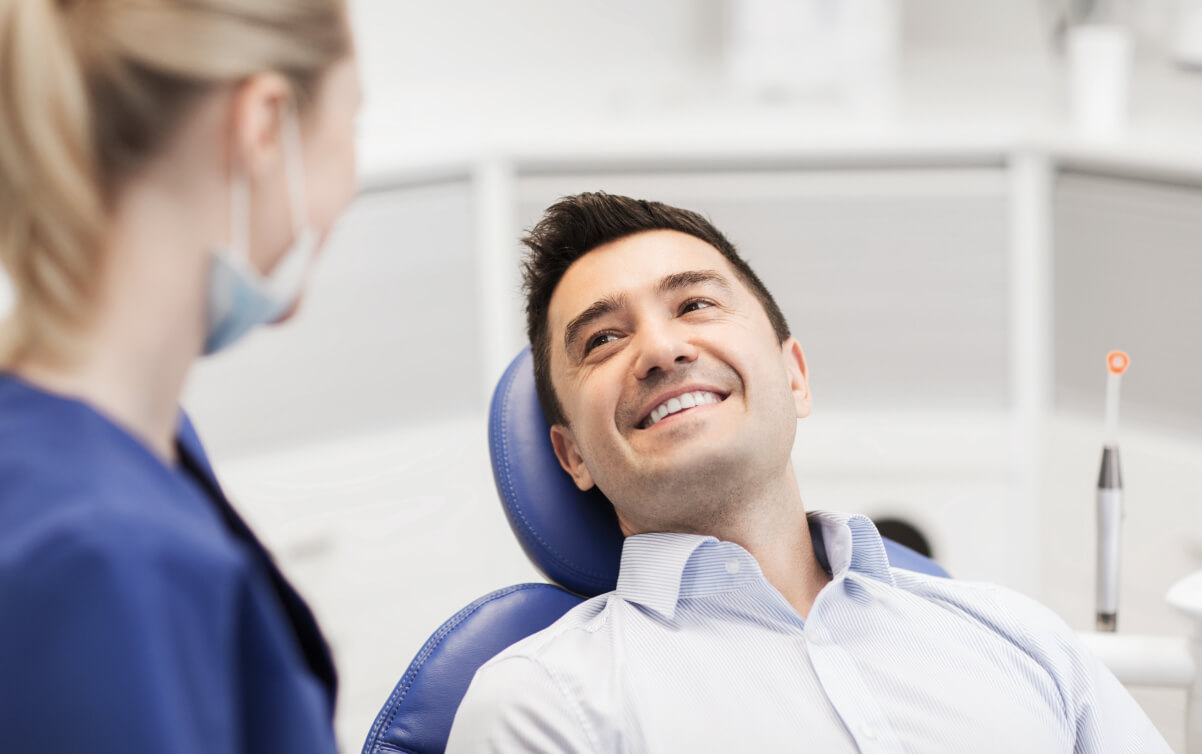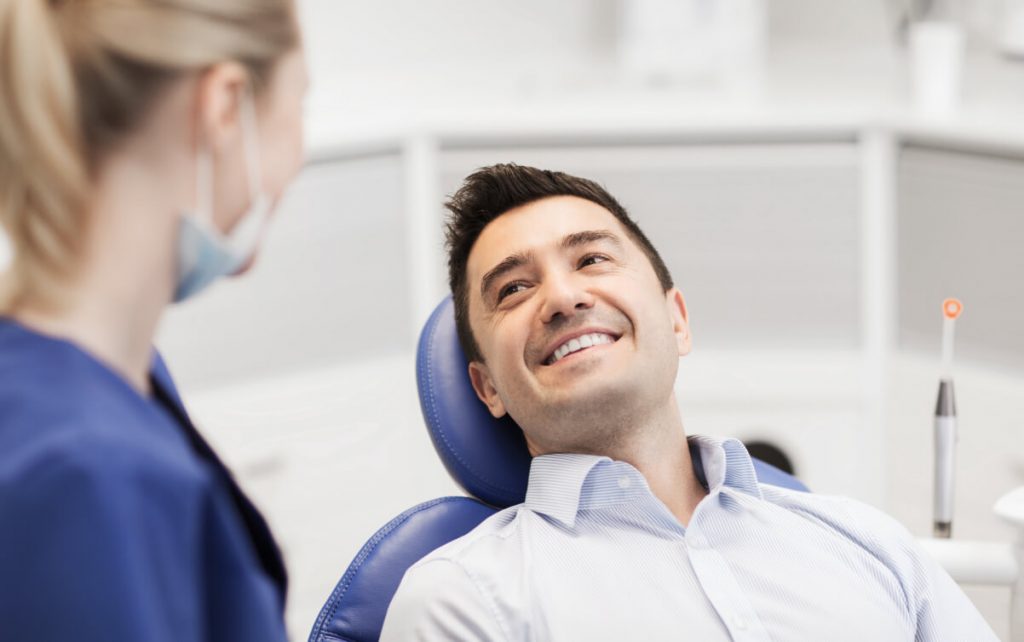How to Stop Grinding Teeth – Tips and Strategies for Better Sleep
Do you find yourself constantly grinding teeth throughout the night? Many people suffer from this issue, which can cause a whole host of unwanted symptoms, including facial pain, chronic headaches, and even jaw disorders. Luckily, there are several strategies that can help to stop grinding your teeth and help you get a better night’s sleep. In this post, we will look at the causes, effects, and tips on how to stop grinding teeth so that you can get some much-needed rest.
Identify the Cause of Teeth Grinding
Teeth grinding, also called bruxism, is a common condition that affects people of different ages. While many people may grind their teeth occasionally, habitual teeth grinding can lead to medical complications such as damaged teeth and joint problems. Identifying the cause of teeth grinding is an important step in managing the condition effectively. For some people, teeth grinding is caused by stress and anxiety, while for others, it may be due to a sleep disorder. In rare cases, certain medications and medical conditions may cause teeth grinding. A professional evaluation can help determine the specific cause and provide personalized treatment recommendations. Whether it’s practicing stress management techniques or wearing a dental appliance, there are several ways to manage teeth grinding and prevent further damage to the teeth and jaw.
Seek Professional Dental Help
If you think you might be grinding your teeth, it’s crucial to seek help from a professional dentist. They will thoroughly examine your mouth and assess the extent of the damage caused by teeth grinding. Additionally, they may suggest using a night guard or splint to protect your teeth while you sleep, preventing further damage. In some cases, dental procedures like crowns or braces might be recommended to address underlying issues contributing to teeth grinding.
Teeth grinding, or bruxism can have serious consequences if left untreated. It can lead to tooth sensitivity, jaw pain, headaches, and even tooth fractures. By consulting with a dentist and following their recommendations, you can effectively address the issue and prevent future complications.
Remember, your oral health is an essential part of your overall well-being. Don’t hesitate to reach out to a dental professional if you suspect you’re grinding your teeth. They have the expertise and resources to provide the necessary care and guide you toward a healthier, pain-free smile.
Take control of your oral health today and prioritize seeking professional assistance for teeth-grinding concerns. Your future self will thank you for it!

Teeth Grinding Treatment
Make Lifestyle Changes
Certain lifestyle habits can contribute to teeth grinding in some cases. For instance, excessive alcohol consumption or smoking has been found to increase the likelihood of teeth grinding. By cutting back on or eliminating these habits altogether, individuals can reduce the frequency and intensity of teeth-grinding episodes. Another essential step is to avoid consuming caffeine before bed, as it can disrupt sleep patterns and increase stress levels.
Taking care of oral health is crucial, and addressing teeth grinding is no exception. By understanding the potential causes and making positive changes, individuals can proactively work towards minimizing this issue. Additionally, adopting relaxation techniques, such as deep breathing exercises or meditation, can help manage stress levels and reduce teeth-grinding incidents.
It is worth noting that consulting a dentist is highly recommended for a comprehensive evaluation and personalized treatment plan. Dentists can provide valuable insights, suggest a customized mouthguard, or other interventions that may prove effective in preventing teeth grinding.
By taking proactive measures and making necessary adjustments, individuals can safeguard their oral health and improve their overall well-being. By implementing a comprehensive approach, teeth grinding can be effectively managed, promoting healthy teeth and a well-rested smile.
Practice Stress Management Techniques
Stress and anxiety often play a significant role in triggering teeth grinding. If you find yourself frequently stressed or anxious, it’s important to incorporate relaxation techniques into your daily routine. Consider practicing meditation, deep breathing exercises, or yoga to alleviate stress and promote better sleep. Quality sleep, in turn, can help reduce teeth grinding at night.
In addition to relaxation techniques, regular exercise is also beneficial for managing stress levels and improving overall sleep quality. Engaging in physical activity not only reduces stress but also promotes a sense of well-being. Whether it’s going for a jog, attending a fitness class, or simply taking a walk, finding an exercise routine that suits you can have a positive impact on your mental and physical health.
By addressing stress and anxiety through relaxation techniques and regular exercise, you’re taking proactive steps to reduce teeth grinding and improve your overall well-being. Remember, self-care is key to managing stress and maintaining a healthy lifestyle.
Practice Relaxation Techniques
In today’s fast-paced world, finding a moment to relax can be challenging. However, prioritizing relaxation is vital for our overall well-being and mental health. Fortunately, there are various techniques available to help us let go of stress and tension.
One effective method is deep breathing exercises. By taking slow, deep breaths, we can immediately feel a sense of calm and relaxation. Another popular technique is meditation, which involves focusing our attention and clearing our mind. This practice can help reduce anxiety and enhance our mental clarity.
Additionally, incorporating yoga into our routine is an excellent way to relax the body and mind. The combination of gentle movements, stretching, and breathing exercises provides a holistic approach to relaxation. Regular yoga sessions can even improve sleep quality, leaving us feeling refreshed and rejuvenated.
It’s important to remember that practicing relaxation techniques doesn’t have to take up much time. Even just a few minutes each day can make a significant difference. So, why not take a moment right now and try something simple like deep breathing or a quick meditation? Your mind and body will thank you.
Reduce Stress Levels
Stress is a common trigger for teeth grinding, so finding ways to reduce stress in our daily lives can significantly benefit our oral health. One simple but effective way to do this is by setting boundaries and prioritizing self-care. This may involve saying no to tasks or commitments that add unnecessary stress, taking time off from work, or scheduling regular breaks throughout the day.
It’s also essential to find healthy ways to cope with stress. Engaging in activities we enjoy, spending time with loved ones, and seeking support from a therapist or counselor are all great ways to alleviate stress and promote well-being.
By learning how to manage stress effectively, individuals can take control of their oral health and reduce the likelihood of teeth grinding. Remember, taking care of yourself is crucial, and prioritizing stress management techniques can have a significant impact on our overall well-being. Don’t wait until teeth grinding becomes a problem start implementing healthy habits today for a happier, healthier future. So, whether it’s practicing relaxation techniques, seeking professional guidance, or making lifestyle changes, prioritize your oral health and take proactive steps toward preventing teeth grinding.
Change Your Sleep Position
Believe it or not, our sleeping positions can also contribute to teeth grinding. Sleeping on your stomach or with your face buried in the pillow can put pressure on your jaw and cause tension in the muscles, leading to teeth grinding.
To avoid this, try sleeping on your side or back instead. Placing a small pillow between your knees while sleeping on your side can help keep your body aligned and alleviate pressure on the jaw. Alternatively, investing in a supportive pillow designed for back sleepers can also make a difference.
It may take some time to adjust to a new sleeping position, but making this change can have significant benefits for your oral health and overall well-being. Additionally, it’s essential to ensure that your mattress is comfortable and supports your body properly to promote restful sleep.
Avoid Stimulants Late in the Day
Stimulants like caffeine and nicotine can increase alertness and make it challenging to relax and fall asleep. This, in turn, can contribute to teeth grinding. To prevent this, it’s best to avoid consuming stimulants late in the day, especially close to bedtime. Instead of reaching for a cup of coffee or energy drink in the evening, opt for calming herbal teas or decaffeinated beverages. Additionally, consider reducing or quitting altogether if you’re a regular smoker. Not only will this benefit your oral health, but it can also improve your overall well-being.
By making small changes in our daily routines and habits, we can take control of teeth grinding and have a positive impact on our overall quality of life. Remember to prioritize self-care and seek professional help if necessary. With the right approach, we can prevent teeth grinding and maintain a healthy, pain-free smile for years to come. So start implementing these tips today and reap the benefits of better oral health tomorrow! Staying mindful of our daily routines and making small changes where necessary can have a significant impact on our overall well-being.

Small Changes Can Help in Preventing Teeth Grinding Issue
Make Dietary Changes to Reduce Tooth Grinding Symptoms
The food and drinks we consume have a significant impact on teeth grinding. For instance, indulging in caffeine or alcohol in the late hours of the day can impede relaxation and spike stress levels, ultimately triggering teeth grinding. To minimize the risk of these triggers, it is advisable to enrich your diet with nutrient-rich foods like fruits, vegetables, and whole grains. Not only do these foods enhance your mood, but they also reduce stress levels. Furthermore, adopting the practice of limiting or abstaining from caffeine and alcohol consumption during the evenings can greatly contribute to restful sleep.
Taking care of your oral health goes beyond maintaining a regular oral hygiene routine. It’s important to recognize the various factors that can contribute to teeth grinding, such as dietary choices. By making conscious decisions about what we consume and adopting a well-balanced diet, we can effectively reduce the risks associated with teeth grinding and promote overall oral health.
Incorporating nutrient-rich foods not only benefits our teeth but also supports our overall well-being. Fruits, vegetables, and whole grains provide valuable vitamins and minerals that boost our immune system and help ward off oral health issues. Maintaining a well-rounded diet not only improves our mood and reduces stress levels but also promotes a healthy smile.
In addition to dietary modifications, it’s crucial to establish good lifestyle habits to combat teeth grinding. Alongside a balanced diet, prioritize regular exercise, stress management techniques, and sufficient sleep. These factors work together to create an optimal environment for healthy teeth and a relaxed state of mind.
Seek Medical Treatment for Underlying Conditions
Teeth grinding, also known as bruxism, can sometimes indicate an underlying medical issue like sleep apnea or temporomandibular joint disorder (TMJ). If you suspect an underlying condition as the cause of your teeth grinding, it is crucial to seek medical treatment from a doctor. Addressing the root cause not only aids in reducing teeth grinding but also enhances overall health and well-being.
Sleep apnea is a condition characterized by interrupted breathing during sleep, leading to poor-quality sleep and daytime fatigue. Treating sleep apnea can have a significant impact on teeth grinding. Continuous positive airway pressure (CPAP) therapy is a common treatment for sleep apnea, which involves wearing a mask during sleep that delivers pressurized air to keep the airway open.
Temporomandibular joint disorder (TMJ) refers to a condition involving pain and dysfunction in the jaw joint and surrounding muscles. TMJ may contribute to teeth grinding, as individuals may grind their teeth as a way to alleviate discomfort. Treating TMJ can involve a combination of approaches, such as medication, dental splints, physical therapy, and stress management techniques.
In addition to seeking medical treatment, there are various self-care measures you can take to manage teeth grinding. These include practicing stress reduction techniques, avoiding stimulating substances like caffeine and alcohol, maintaining a regular sleep schedule, and using a mouthguard or splint at night to protect your teeth.
Remember, addressing any underlying medical conditions and implementing proper self-care strategies can make a significant difference in reducing teeth grinding and promoting overall oral health and well-being.
In conclusion, tooth grinding can be a serious condition with lasting consequences if left untreated. Identifying the potential issues causing your teeth grinding is essential in order to treat the issue appropriately and prevent further damage. Awareness of what could be causing your teeth grinding, seeking out professional help, practicing relaxation techniques, reducing stress levels, changing sleep positions, avoiding stimulants late in the day, or making dietary changes are all expert-recommended ways to help reduce teeth grinding discomfort. Taking these steps will not only provide relief while actively managing your tooth-grinding symptoms but may even prevent further health risks and dental damage from occurring in the future. Take control over your situation and don’t wait any longer – contact a professional dentist today about treatments for your teeth grinding concerns and get on the road to a healthier smile!
https://www.google.com/maps?cid=16874987499964767764
